#NeuroWild (Facebook)
Text
Walking through why I can't just DO the THING
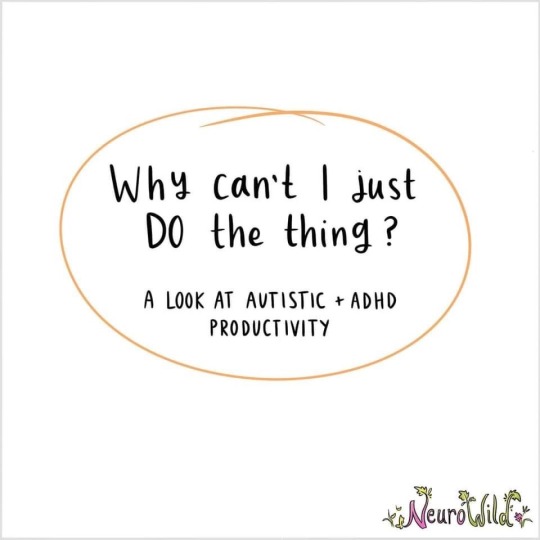
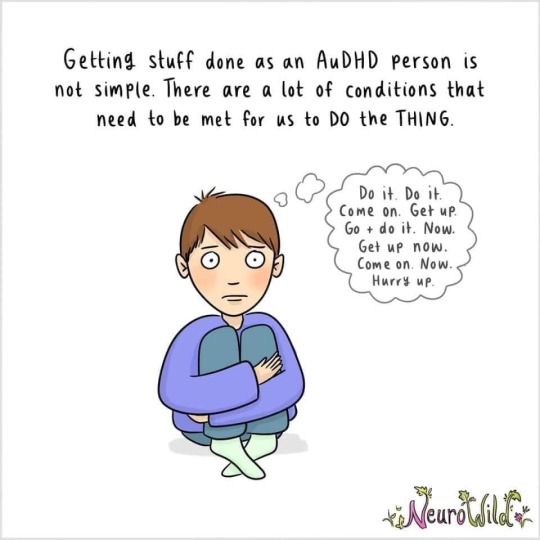
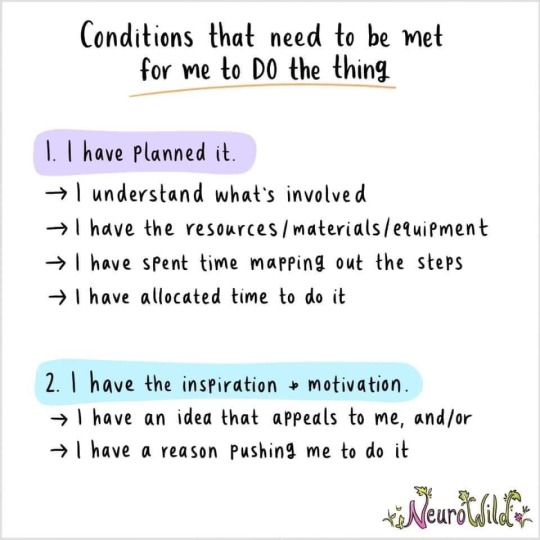
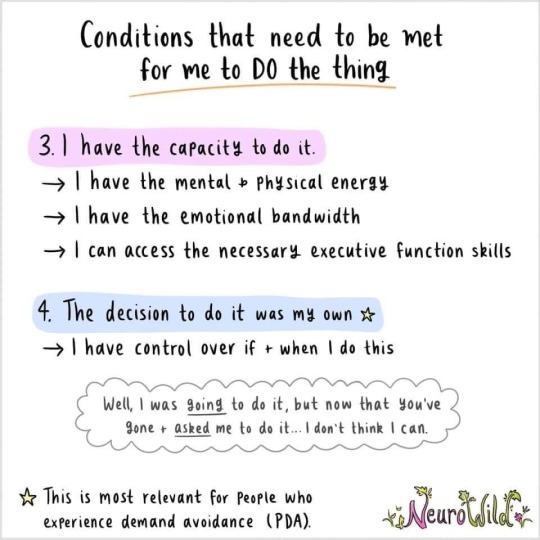
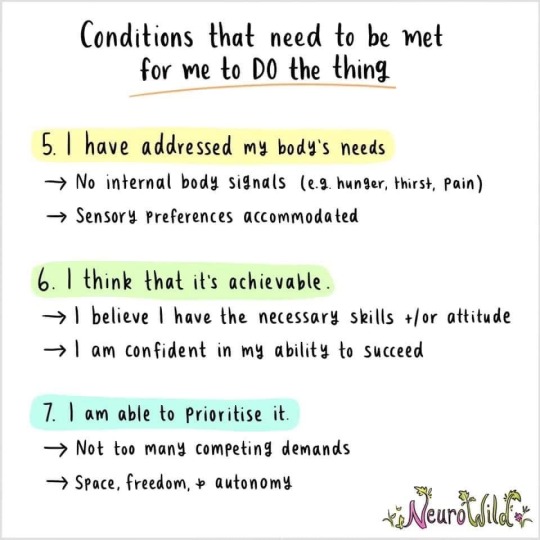
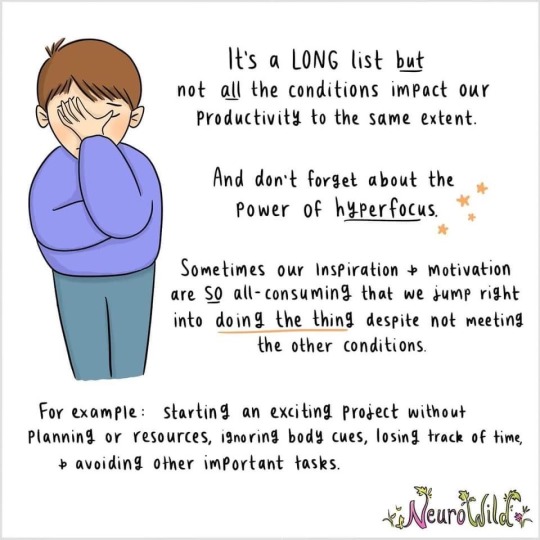

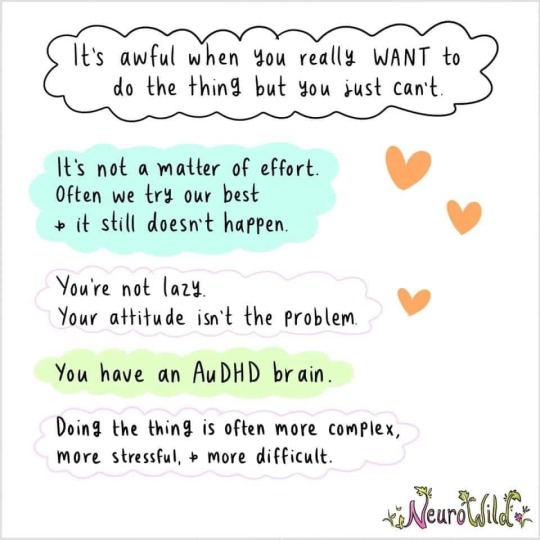
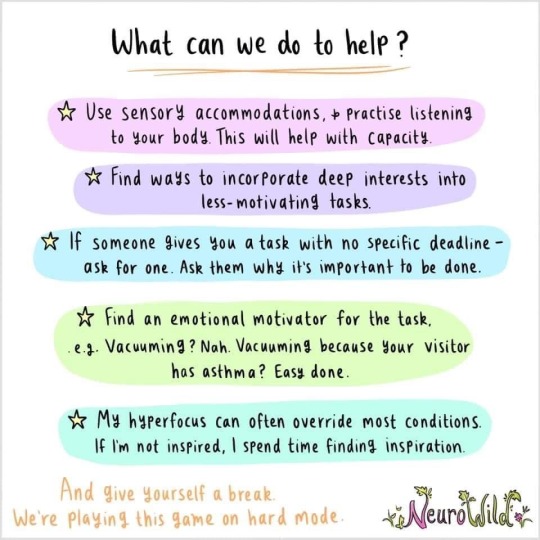
NeuroWild
#autism#adhd#taking care of things#you are not lazy if you can’t do the thing#you have an AuDHD Brian#neurodivergence#neurodiversity#actually neurodivergent#feel free to share/reblog#NeuroWild (Facebook)
764 notes
·
View notes
Text
Many of our neurodivergent kids have ‘spiky profiles’. This means that their brightest, strongest skills are high- often way above those of other kids their age. Their big skills are BIG. And if you were to compare these big skills to the skills that they struggle the most with, the gap might be quite substantial. Hence the ‘spike’.
I’m talking our ND kids working way above grade level at school. Maybe they are brilliant at maths, or writing, or perhaps their verbal communication skills would have you believing that they’re a good five years older than they are. They also struggle with things.
Adults often make the mistake of seeing this kid’s brilliant academic skills, and assume that this child should be equally as brilliant in every other aspect of their life. That means executive functioning, ‘social skills’, life skills, daily tasks, emotional regulation, etc. Adults often expect that this kid should be just as great at everything else as they are at maths.
When this 7-year-old child struggles with something ‘simple’ like getting dressed, parents might turn around and say things like ‘I just watched you do 5 pages of long division- stop being ridiculous. This is EASY compared to that.’
The thing is, it isn’t. Not for this kid.
Maths was simple for them, the way that getting dressed might be simple for you. Conversely, getting dressed is hard for them, the way that maths might be hard for you.
We need to meet them where they’re at.
We can marvel at their mathematical brilliance, wonder how on earth they can do those complex equations. And then after, we can help them clean up the milk they spilled, and comfort them about the mess. We help them regulate when their feelings are so big about the bits of cereal on the floor, and the drops of milk that landed on their shirt. We work alongside them to pack their bag in the morning. We help them work through the huge sadness of losing a game to their brother.
We do all that.
And we know that we are supporting them where they need the support.
And we are are still there, in their corner, when they don’t.
Point is, they know that we are there no matter what. That connection and that trust is essential.
People need to understand that The brilliance we have in one area is not necessarily transferable to different things. And suggesting it is is unreasonable and distressing.
So let’s not, yeah?
Em 🌈🌻✌️
AuDHD SLP
From this Facebook page by NeuroWild, which I can't link to directly.
https://www.facebook.com/story.php?story_fbid=pfbid0q9VWZcp6nrafjCMgzQUH6Yr4V2wsGVyAWGgt2j9N7S7fedoBEz2g7v6mhRAZY7Vsl&id=100087870753308&mibextid=Nif5oz
197 notes
·
View notes
Text
Thank you Em @ NeuroWild
“The illustrations that started it all.
I would draw these slightly differently now.
The main difference would be highlighting the value of coregulation. Independent regulation is all well and good but it doesn't work for me. I usually need someone to help.
And that's ok.
You know?
Em 🌈”




#asd#tea#autism#autismo#autistic#autista#adhd#audhd#neurodiversity#neurodivergente#neurodivergent#neurodiverse#actually adhder#slp#ot#aba#behavior#sped#sped teacher#sped community#asd community#neurodivergent community#comunidad autista#psychology#neurology#psychiatrist
14 notes
·
View notes
Note
i gotta... make my emotional regulation better... do you have Book Recs (i ask since you are the person who made me aware this was Potentially Changeable)
Oh man. I actually haven't read any books about it I mainly just follow people on facebook who talk a lot about it... let me see if I can find any links
I like the Boundaried Bootcamp page which is more about interpersonal interaction but also it DOES have stuff about emotional regulation bc its about drawing distinct lines around what is and is not your/other ppls responsibility
I follow a LOT of gentle parenting pages bc a lot of them are aimed at parents trying to help their kids learn emotional regulation and I just apply that to myself retroactively lol. Responsive Parenting Inspirations is one. Not An Autism Mom sometimes has good stuff too. & The Therapist Parent. Neurowild is another
Neurobeautiful is about being autistic and learning social skills by rote as an adult and I use a lot of similar frameworks myself
Anxious Black Girl Comics has a lot of comics about sort of reparenting yourself and moving thru the world as an adult who didn't have... a childhood that was conducive to learning how to be a human
There's some more but my FB app is acting up. Are we friends on there? I repost and share a lot of posts about things like regulation on FB. it's hard for me to unequivocally recommend individual pages or counselors bc a lot of them have stuff i also don't agree with but that's why I follow so many, so I can sort of pick and choose what I find helpful and discard the rest, lol.
#dr glenn patrick doyle is like sooo hit and miss for me he has a lot of stuff abt cptsd and emotional regulation#BUT ALSO 70% OF HIS POSTS ARE REALLY INSUFFERABLE TO ME lol#worth a look tho#dysfunction junction#oh i also find some stuff about secure attachment helpful#bc secure attachment is necessary to coregulate and coregulation is soo helpful
137 notes
·
View notes
Text
Again, I'm not diagnosed autistic, but I seriously suspect I am. Of course being an adult, it's next to impossible to get a diagnosis. I was personally told testing wasn't going to do any good, because there is no cure. 🙄 But this whole infographic is 100% me.
Credit goes to Neurowild on Facebook.

#christina talks#neurodivergent#probably autistic#this is me#i can confirm indeed#a lifetime of this has left me a mess#just ask anyone who sticks out my friendship for more than a week#I'm a mess#😅😅😅
4 notes
·
View notes
Text
People Say We Are Rude But Actually…

We often can’t differentiate or control our tone
We may show empathy by telling a story about ourselves
We ask questions to clarify, not to be argumentative
We just tend to be direct
We prefer deep conversations over small talk
We may correct you because we value honesty and facts
NeuroWild
#we are not trying to be rude#I just want clarification#and my voice is either too loud or too quiet#I find sharing personal experiences can be a way of showing empathy#I tend to correct sometimes because I want something to be right#I’m sure some of you can relate#feel free to share/reblog#NeuroWild (Facebook)
311 notes
·
View notes
Text
Creating Safety for Autistic Folk
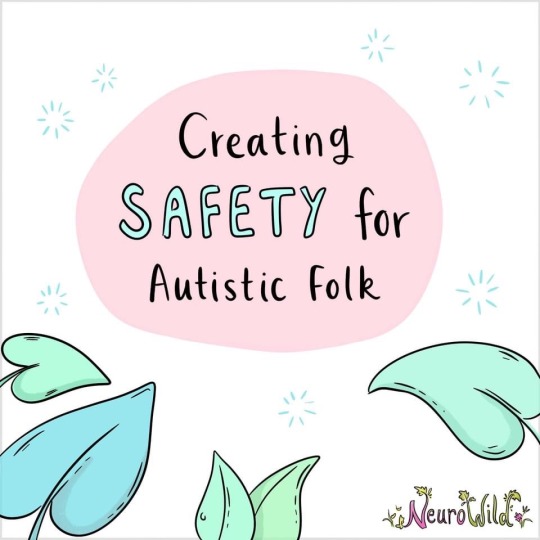
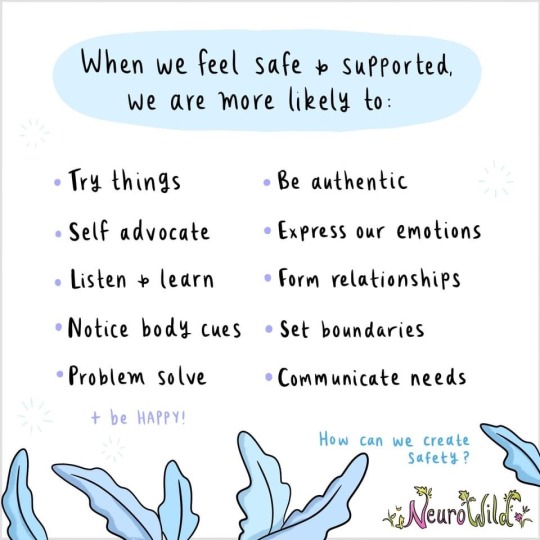

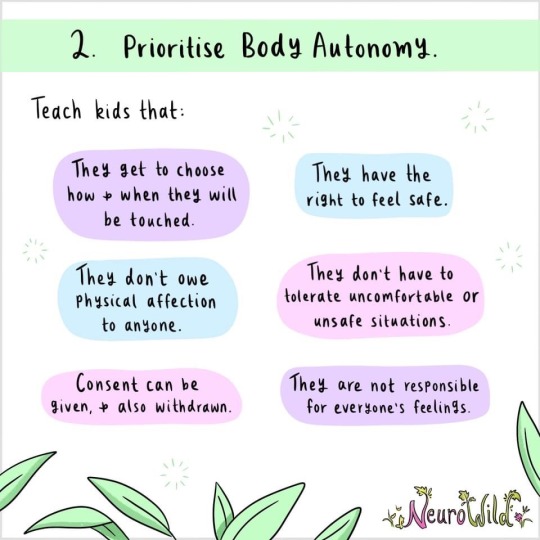
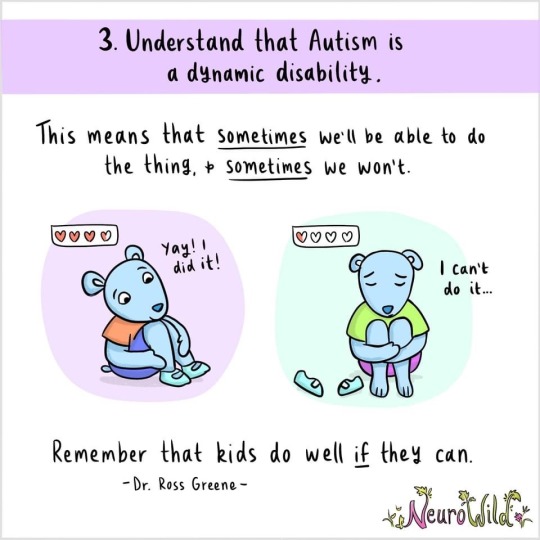


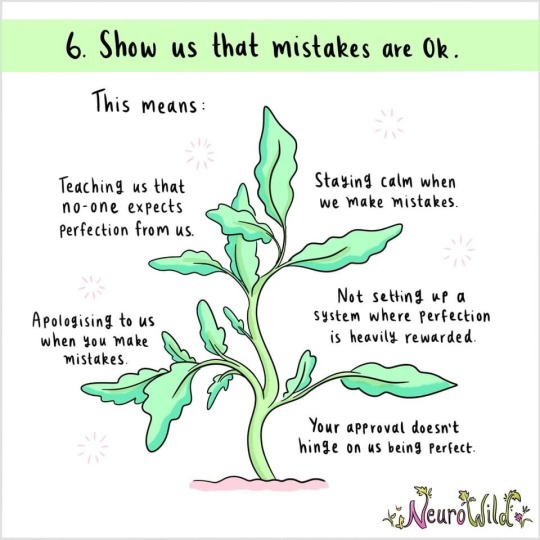


NeuroWild
#autism#actually autistic#creating safety#how to make us feel safe#autistic support#NeuroWild (Facebook)#feel free to reblog/share
488 notes
·
View notes
Text

NeuroWild
#mental health#take care of yourself#it’s ok to take a break#please don’t be hard on yourself#feel free to share and reblog#NeuroWild (Facebook)
292 notes
·
View notes
Text

ADHDers are often able to HYPERFOCUS on things that we're interested in. This means we are able to do amazing things like: focus for days, learn new things quickly, build skills, to create cool stuff.
We also need to be aware that when we hyperfocus we might forget to eat, drink, sleep, or use the bathroom which can make our boay dysregulated & cranky.
NeuroWild
128 notes
·
View notes
Text

Thank you @ NeuroWild
“I tried to explain a bit about how I experience empathy as an AuDHD human.
It was not easy.
I still have to think about it a whole lot more.
Do you relate to any of these?
Em 🌈”
#asd#tea#adhd#audhd#autism#autismo#autistic#autista#neurodivergent#neurodivergente#neurodiversity#neurodiversidad#comunidad autista#autism community#adhd community#comunidad tdha#neurodivergent community#comunidad neurodivergente#aba#behavior#empathy#slp#ot#SLPA#phl#thl#sped#special needs community#special needs teacher#special needs
28 notes
·
View notes
Text

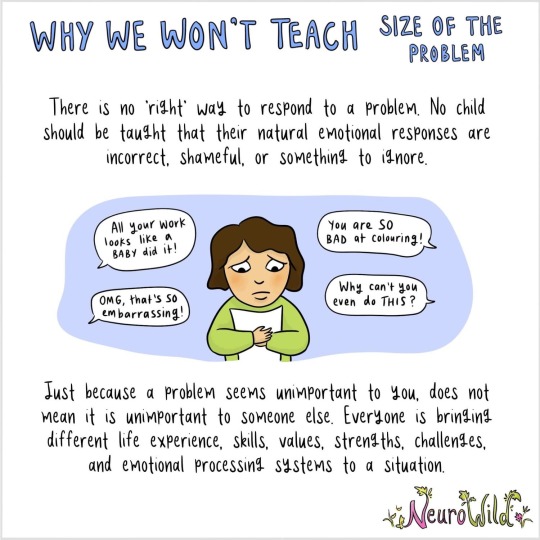
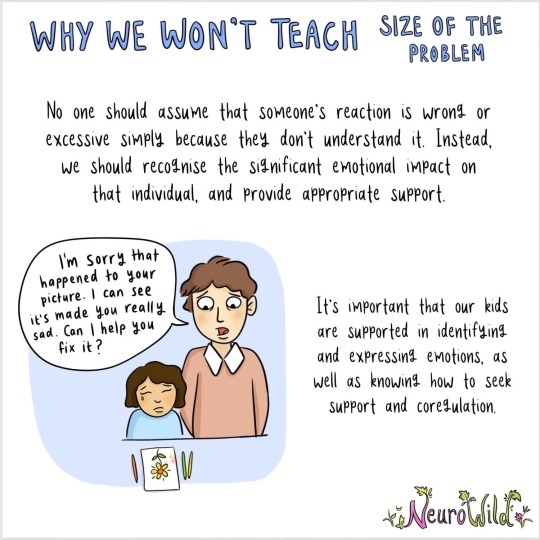
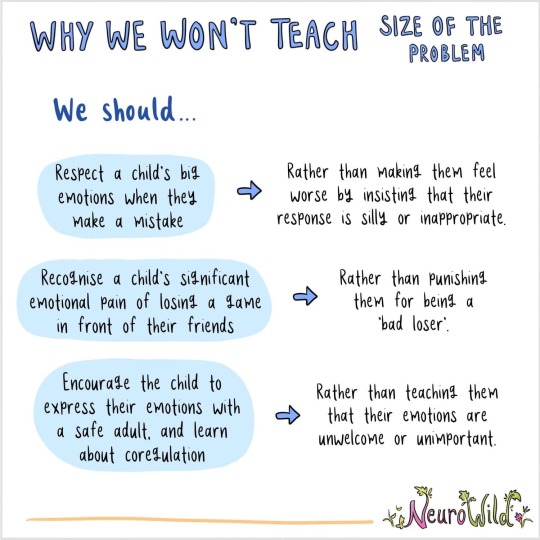
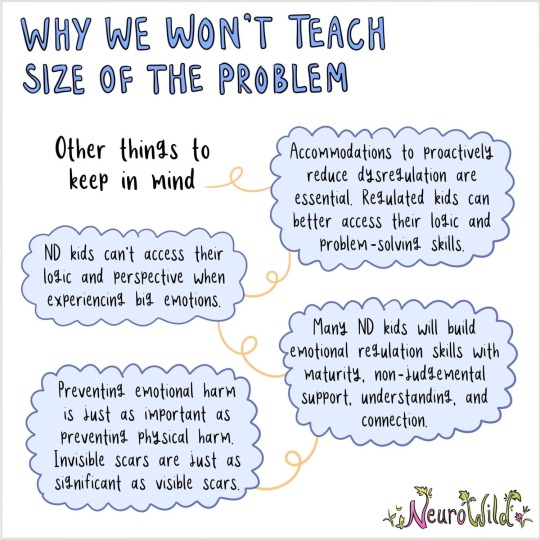
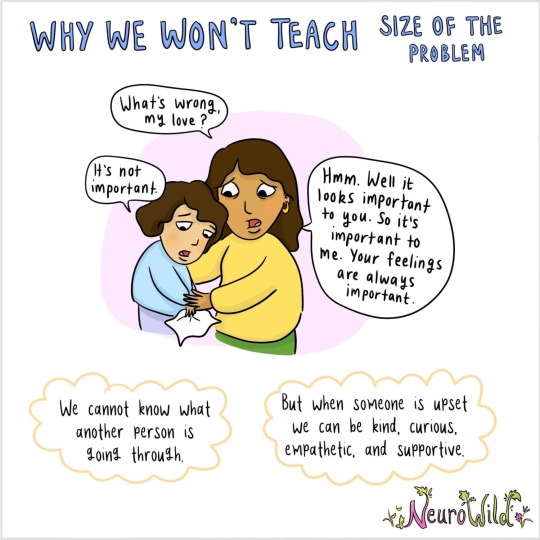
Thank you to Em at NeuroWild
“Let’s talk ‘size of the problem’.
This is something a speech therapist might work on with a kid. Potentially it might also be picked up by a psychologist, OT, teacher, or other adult.
Generally, this goal is given to neurodivergent kids to try and minimise their emotional responses to ‘small problems’. In other words, adults want our ND kids to stop ‘getting upset’ over ‘trivial’ things.
Here’s the thing though- what is small for some people is not small for everyone else.
We don’t choose our emotions.
We respond to problems and situations with whatever processing system and mental capacity we have at the time.
We do the best that we can.
Our ND kids might react more intensely to something like spilling a drink than their neurotypical peers. That doesn’t make their response wrong. It simply reflects the varied human experience.
It’s important to remember that a big emotional response is often due to an accumulation of stressors, increasing dysregulation, and depletion of mental energy. It’s actually not about the problem that just occurred- that was just the breaking point. It’s about all those other things.
Anyway.
I hope these images make sense.
I know they’re wordy.
If anyone could write up image descriptions I will attach them.
Otherwise, I’d like to know your thoughts on this.
Em 🌈”
#asd#tea#autism#autismo#autistic#autista#neurodiversity#neurodiversidad#neurodivergent#neurodivergente#audhd#adhd#SLP#OT#aba#BCBA#behavior#sped#sped community#sped teacher#special needs community#special needs teacher#size of the problem#don’t teach size of the problem#neurodivergent community#autistic and proud#autistic culture#autistic community#actually neurodivergent#comunidad neurodivergente
17 notes
·
View notes
Text
Thank you Em @ NeuroWild
“While we’re talking about the NeuroWild Shift and respecting fluctuating capacity, let’s revisit this infographic.
I had someone in the comments the other day insisting that I *could* do the thing, because I had demonstrated that I could do it a few times. They suggested that I just needed a positive attitude and clearer instructions, and then I would be able to get it done *every* time.
I told them no.
Recognising that I can sometimes do the thing, and sometimes I can’t, is not me being negative. It’s me being realistic and recognising my fluctuating capacity. It’s me validating those very real struggles.
When we hold ourselves to the idea of ‘should’, simply because that’s the neurotypical way, we end up in such a bad place. That’s pretty much the poster for internalised ableism.
And I’m not about it.
We can celebrate the times that we do the thing.
We can also accept the times when we can’t and recognise that it’s not a matter of attitude or effort.
We accommodate.
It can be hard a lot of the time.
But understanding and accepting this about myself has made it a lot easier.
It’s just the reality of an AuDHD life.
It’s a significant part of our existence.
And that’s ok.
Yes?
Em 🌈”









#asd#autism#autistic#adhd#autismo#neurodivergent#autista#neurodiversity#tea#neurodivergente#audhd#actually adhder#tdha#neurodiversidad#sped#sped teacher#aba#behavior#slp#ot#sensory processing#special needs community#special needs
17 notes
·
View notes
Text

Thank you Em from NeuroWild
“There's no one way to be Autistic.
You won't find two Autistic people the same, just as you won't find two neurotypical people the same.
Do many of us have similarities? Yep.
And just as many of us have countless differences.
Rather than thinking 'you can't be Autistic because you are so different to the Autistic person in my life', it would be great if you thought 'huh. I did not know that Autistic people could be like that. I guess my perception of Autism has been quite narrow.'
What an amazing shift that would be.
Let's wish it.
Yes?
Em 😊”
#asd#tea#autism#autismo#autistic#autista#audhd#adhd#tdha#neurodivergent#neurodivergente#neurodiversity#actually neurodivergent#neurodivergent community#neurodiversidad#actually neurodiverse#neuroatypical#sped#sped teacher#sped community#autistic community#comunidad autista#aba#behavior#slp#ot#special needs community#special education#special education teacher#to be autistic
17 notes
·
View notes
Text
Thank you Em @ NeuroWild
“Here are some examples of ways that classrooms can be neurodiversity affirming.
This is obviously not an exhaustive list. There are a ton of other, very important things (for another day).
The main thing I hear when I suggest accommodations and flexible expectations in the classroom is ‘but what about all the other students?’ ’we can’t just let this kid be out of their seat’, ‘it would be too distracting’, etc.
My opinion of this is: very few kids show up to kindergarten being naturally inclined to sit perfectly still or silently. I don’t believe that kids naturally need either of those things to work, learn, or focus.
I think that kids are trained to do those things to meet classroom rules and teacher expectations. When a neurodivergent kid then moves around during learning, or hums quietly during spelling- the teacher often highlights this as a problem. And the rest of the kids see that. They know what the rules are, they know that student isn’t following them like they should be. They learn to know that student as ‘naughty’ or bad at school.
I think that is a conditioned response.
Early primary teachers could just as easily explain to their young students that everyone’s brains and bodies need different things. Learning doesn’t look the same for everyone. Focusing doesn’t look the same for everyone. That student who is rocking in their chair is doing what their body needs. That student who has headphones on while writing is listening to their sensory needs- awesome. Teachers can either model acceptance and celebrate difference, or they can respond to our kids with annoyance - teaching the rest of the kids to do the same.
Kids who really need silence to work- let’s get them some headphones for when they want them. I bet the majority of the class get work quite happily in a not-silent room. Let’s get some quiet music playing in the background. Why not? Where in the real world is silent? My house literally never is.
Kids are far more flexible than adults in being able to adjust to stuff like this. Teachers have such an opportunity to make massive change.
Note: I’m not in any way suggesting that screaming, roaring noise should be accepted in the classroom. I’m saying that I don’t think silence is essential.
I have a lot more to say about this but it’s a pretty long caption already.
What other things makes a classroom neurodiversity-affirming?
Em 🌈”

#asd#tea#adhd#tdha#neurodivergent#neurodivergente#audhd#audher#autism#autismo#autistic#autista#neurodiversity#neurodiversidad#autistic community#comunidad neurodivergente#comunidad autista#neurodivergent community#slp#ot#aba#behavior#sped#special needs#teacher#special needs community
8 notes
·
View notes
Text

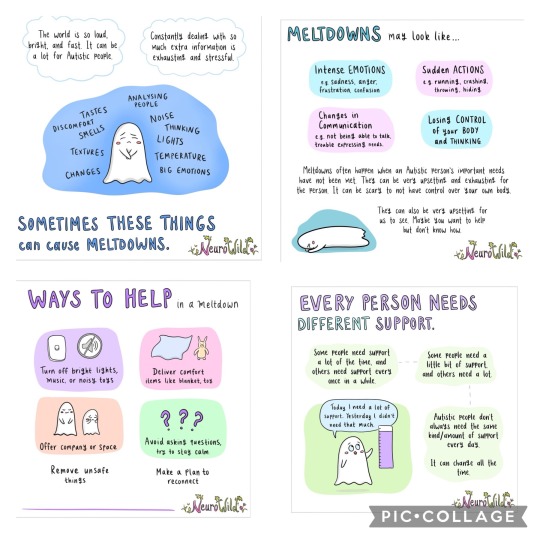


Thank you Em at NeuroWild
“⭐️ New Resource ⭐️
This has taken me a good minute to put together.
It’s pretty long as is, and it still doesn’t cover everything I want to say.
So let’s just call it a starting point. Because no kid wants to sit through more than 15 pages.
This one is for parents/adults to use when talking to their non-autistic kids about their autistic sibling.
I recommend using each page to open up a discussion.
Invite your kid to ask questions or share their thoughts. Make it relevant to them. Let them know that curiosity is important.
If every page isn’t useful to your family, print the whole thing and throw the irrelevant pages out.
This resource cannot possibly suit every family in the world.
Still, I hope it’s useful to a lot of you.
Let me know what you think.
You can get it as a digital download on TPT:
https://www.teacherspayteachers.com/Product/When-Someone-In-Your-House-Is-Autistic-15-page-illustrated-resource-11362768?st=ff061668d373c66979dbe86eab0a77d9
Em 🌈”
#asd#tea#audhd#autism#autismo#autistic#autista#neurodiversity#neurodivergente#neurodiversidad#neurodivergent#neurodiverse#adhd#SLP#OT#aba#behavior#BCBA#sped#sped teacher#teacher#special needs community#special needs teacher#sped mom#autistic and proud#autism community#neurodivergent community#sped community#actually neurodivergent#comunidad neurodivergente
5 notes
·
View notes
Text
Thank you Em from NeuroWild
“For adults wondering how they can help their child develop a positive neurodivergent identity. In other words, how can we help them embrace their Autism diagnosis?
This is not an exhaustive list of suggestions or a timeline that you have to rigidly stick to.
But it’s a good place to start.
As well as the things listed in this resource, I would also encourage you to share specific resources with your kids. For example, my stuff on the Double Empathy Problem, especially when kids are going through social challenges (say mid-late primary and onwards).
Talk to them about Spoon Theory, and show them that resource- especially when they are feeling the weight of exhaustion from existing in a Neurotypical world (probably late primary and onwards).
Show them the one on fluctuating capacity.
Show them the one on executive functioning and how it relates to regulation.
Read through the available resources and have a think about whether it might be useful to look over with your kid. Keep the conversation open and invite questions.
We need to do our best to make sure our kids have the info they need to make sense of their brain and their life.
They deserve to feel good.
Yes?
Em 🌈”

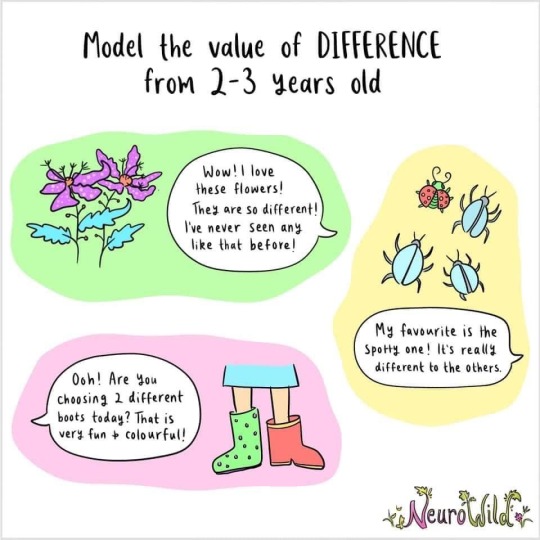
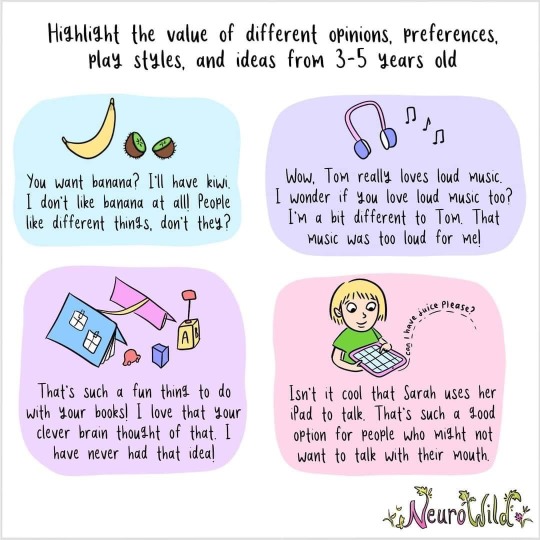
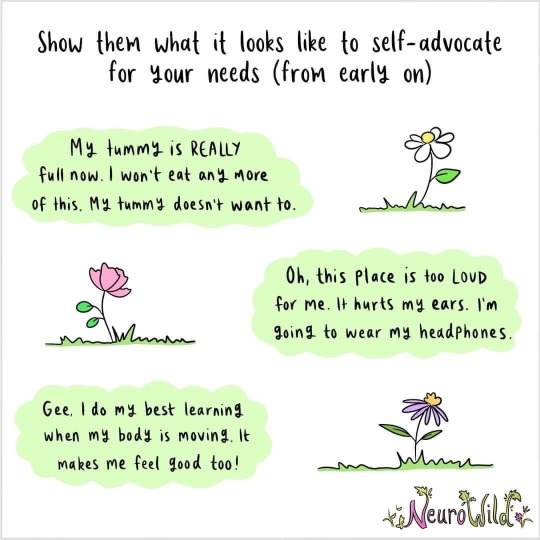
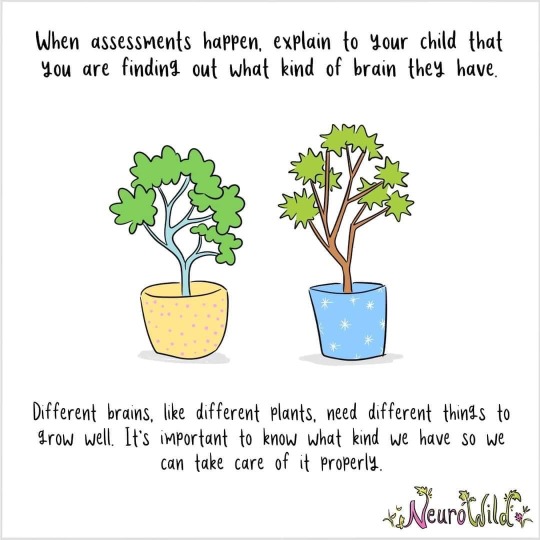
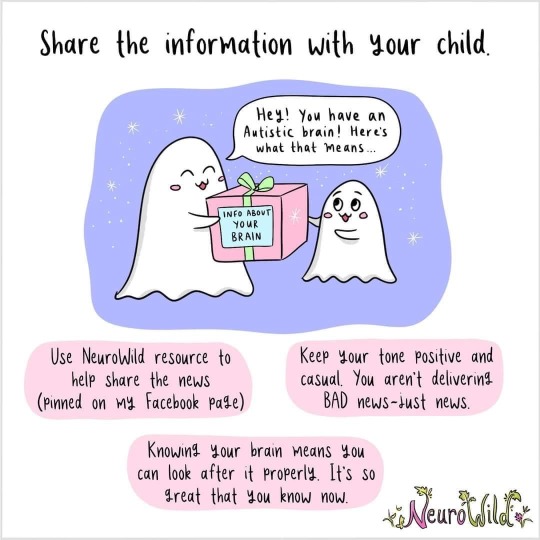
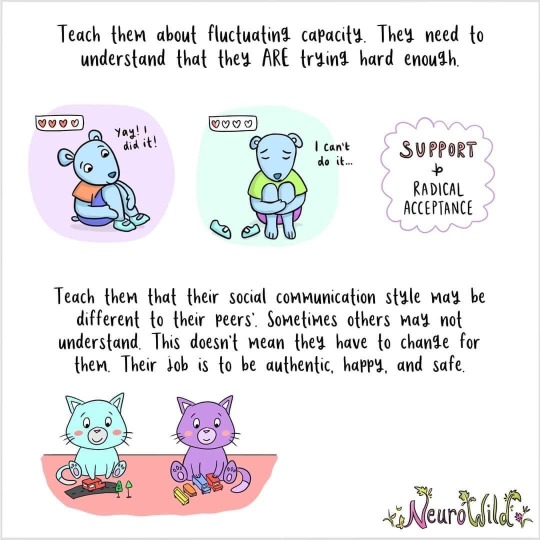
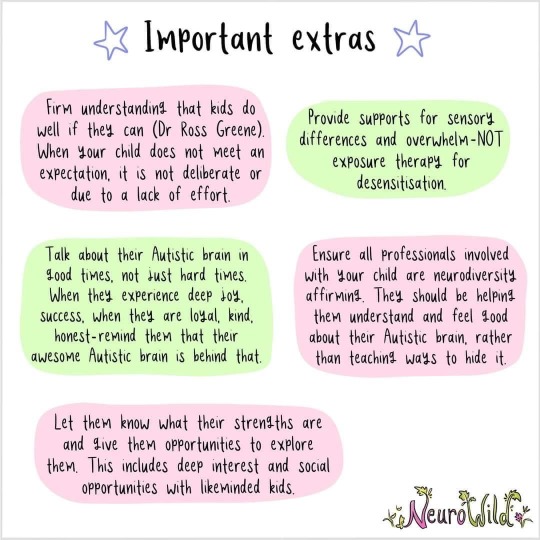
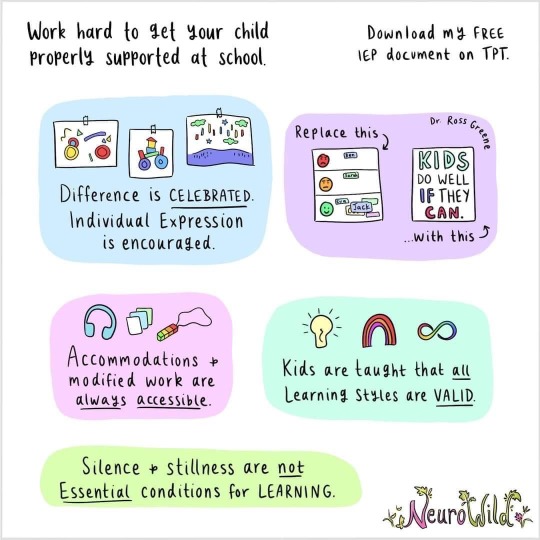

#asd#tea#autism#autistic#adhd#audhd#autismo#autista#neurodivergent#neurodiversity#neurodivergente#neurodiversidad#autistic and proud#comunidad autista#autism community#adhder community#sped#sped teacher#slp#ot#sensory#aba#behavior#neurodivergent community#mental health#positivity#positive mental attitude
2 notes
·
View notes